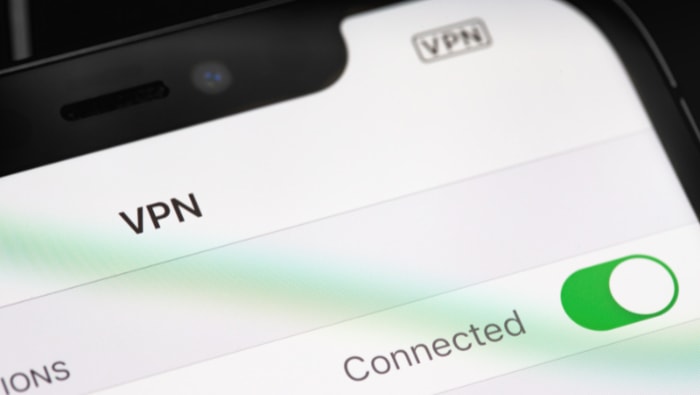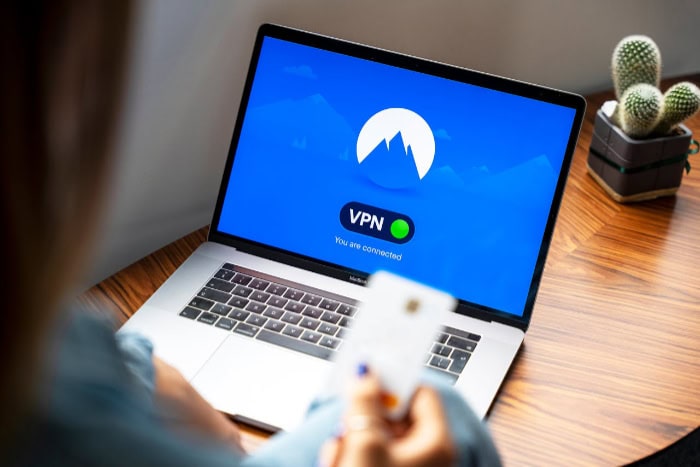Is a VPN Worth It? When You Actually Need One

A VPN is often pitched as an essential shield for online life, but its true value is far more specific. For some, it is an indispensable tool for security on public networks or for accessing services from abroad.
For others, it is a redundant subscription offering little more than a false sense of security. The answer is not a simple yes or no; it depends entirely on your activities, your environment, and your tolerance for risk.
Reaching a clear decision requires a practical look at a VPN's capabilities and its limitations.
What a VPN Does and Does Not Do
A Virtual Private Network creates a secure, encrypted connection between your device and a remote server operated by the VPN provider. All your internet traffic is routed through this private tunnel, which serves as a buffer between you and the public internet.
While this process offers significant advantages for privacy and security in specific situations, a VPN's protections are not absolute, and its purpose is often misunderstood.
Core Capabilities
The primary function of a VPN is to encrypt your internet traffic. This encryption makes your data unreadable to third parties on the same network, which is particularly valuable on untrusted public Wi-Fi in places like airports or cafes.
Without it, your activity could be monitored by malicious actors on that network. A VPN also masks your real IP address, which is a unique identifier that reveals your general geographic location.
Instead of your own IP, websites and online services see the IP address of the VPN server you are connected to. By routing your activity through this remote server, a VPN also prevents your Internet Service Provider from easily seeing which websites you visit.
Important Limitations
A VPN does not provide complete anonymity. Although it hides your IP address from the sites you visit, the VPN provider can still see your online activity.
Furthermore, websites and apps use cookies, browser fingerprinting, and account logins to track you regardless of your IP address. If you are signed into an account, that service knows exactly who you are.
A VPN does not stop platforms from collecting data you have agreed to share through their terms of use. Many services, especially streaming platforms and financial institutions, actively detect and block traffic from known VPN servers.
Using a VPN might also violate a service’s terms, and it does not grant immunity from legal consequences.
Context and Scope
It is useful to distinguish between personal and workplace VPNs. A personal VPN is a commercial product sold to individuals for general privacy and access.
A workplace VPN, in contrast, is a corporate tool that gives remote employees secure access to a company’s internal network and resources. The underlying technology is similar, but the use case is entirely different.
The security of a VPN connection depends on its protocol, with WireGuard and OpenVPN being the modern standards known for their strong encryption and performance. Most VPN services offer applications for various devices, including computers, smartphones, and tablets, allowing you to protect your activity across your personal technology.
When a VPN Is Worth It

While not a universal solution, a VPN provides distinct advantages in specific contexts where privacy, security, or access are compromised. The value of a VPN becomes clear when your online activities align with one of several common scenarios.
For many people, the decision to use one comes down to how frequently they find themselves in these situations.
Public Wi-Fi and Travel
Using untrusted networks, such as the public Wi-Fi found in coffee shops, airports, and hotels, is one of the most compelling reasons to use a VPN. These open networks often lack robust security, making it possible for others on the same network to intercept your unencrypted data.
A VPN creates a secure tunnel for your traffic, protecting your browsing activity and personal information from local snooping. For frequent travelers or remote workers, a VPN also provides a consistent and reliable way to access company networks or region-specific services, ensuring productivity and security while away from home.
Censorship and Geo-Access
A VPN is an effective tool for overcoming geographic restrictions and basic censorship. By routing your connection through a server in another country, you can access websites and content libraries that are otherwise blocked in your physical location.
This is useful for watching streaming services with different international catalogs or accessing news sites that may be unavailable due to government firewalls. Similarly, when traveling abroad, you can connect to a server in your home country to use online banking platforms or subscription services that require a local IP address.
ISP Behaviors and Gaming
In certain circumstances, a VPN can address issues related to your Internet Service Provider. Some ISPs are known to throttle, or intentionally slow down, specific types of internet traffic, such as high-bandwidth streaming or peer-to-peer file sharing.
Because a VPN encrypts your data, it prevents your ISP from seeing the nature of your activity, which can sometimes mitigate this throttling. For competitive online gamers, a VPN can offer a layer of protection against Distributed Denial of Service (DDoS) attacks, which opponents might use to disrupt a player's connection by flooding their IP address with traffic.
When a VPN May Not Be Necessary
A VPN is a specialized tool, not a mandatory one for every internet user. In many common situations, its protections are either redundant or outweighed by practical drawbacks.
For routine online activities on a secure network, a VPN can introduce unnecessary complexity and cost without providing a substantial benefit.
Secure Home Networks
For casual browsing on a secured home network, a VPN is often superfluous. Your personal Wi-Fi, if protected with a strong password using modern WPA2 or WPA3 security standards, already prevents neighbors from snooping on your activity.
Furthermore, the vast majority of websites today use HTTPS encryption, which secures the connection between your browser and the site's server. This encryption ensures that your Internet Service Provider cannot see the specific content you are viewing, only the domain you are visiting.
While a VPN hides the domain from your ISP, the existing layers of security are sufficient for most everyday risks.
Sufficient Privacy Alternatives
A high degree of privacy can be achieved without a VPN by using a combination of other tools. Modern web browsers offer built-in tracking protection, and privacy-focused browsers go even further by blocking third-party trackers and ads by default.
Using a private DNS service, often through DNS-over-HTTPS (DoH), can prevent your ISP from logging the websites you visit. Good digital hygiene, such as using a password manager to create strong, unique passwords and enabling multi-factor authentication on all important accounts, provides direct protection against account takeovers, a threat that a VPN does not address.
Service Friction and Compatibility
Actively using a VPN can create significant friction with certain online services. Many banks, streaming platforms, and e-commerce sites are designed to detect and block traffic from known VPN servers to prevent fraud and enforce regional content restrictions.
This can result in being locked out of your accounts or constantly having to solve CAPTCHA challenges to prove you are human. A VPN might also put you in conflict with the terms of service for some platforms.
The inconvenience of having to disable your VPN to use essential daily services can easily negate the perceived benefits, making it an impractical choice for some users.
Weighing the Benefits and Drawbacks

Deciding whether to use a VPN requires balancing its clear advantages against a set of practical and financial costs. The choice is not just about technology; it involves a trade-off between privacy, convenience, and trust.
Evaluating these factors in the context of your own internet habits is the most effective way to determine if a VPN is a worthwhile addition to your digital toolkit.
The Primary Benefits
A VPN’s main advantages center on privacy and access. It provides stronger privacy from local observers, especially on public Wi-Fi networks where your data could otherwise be exposed.
It also shields your browsing habits from your Internet Service Provider, which can see the domains you visit even when connections are secured with HTTPS. For those who travel, a VPN offers a consistent way to access services from their home region, such as streaming libraries or online banking, that might otherwise be blocked abroad.
This ability to bypass geo-restrictions and enhance security on untrusted networks makes it a valuable tool for specific use cases.
The Practical Drawbacks
The most immediate drawback of using a VPN is the performance overhead. Encrypting your traffic and routing it through a remote server inevitably adds latency and can reduce your internet speed, which may be noticeable during video calls, online gaming, or large downloads.
Many websites and applications, particularly financial services, actively block connections from VPNs, forcing you to disable the service to log in. Beyond the functional issues, there is the recurring subscription cost.
Finally, a VPN adds another layer of complexity to your setup, which can make troubleshooting connection problems more difficult.
The Question of Trust and Governance
When you use a VPN, you are shifting your trust from your ISP to the VPN provider. The provider can, in theory, see all your internet traffic, so its policies and integrity are paramount.
It is crucial to choose a service with a strict, independently audited no-logs policy, which verifies that the company does not store records of your activity. The provider's legal jurisdiction also matters, as some countries have laws that can compel companies to hand over user data.
Look for providers with transparent ownership structures and a commitment to practices like running servers on RAM-only hardware, which ensures data is wiped upon every reboot.
How to Decide and Choose
Making an informed choice about a VPN begins with a clear-eyed assessment of your own digital life. Instead of starting with product comparisons, the best approach is to first define your personal needs and then match them against the features of a reputable service.
A methodical process ensures you select a tool that serves a genuine purpose, rather than just adding another subscription.
Assess Your Needs and Environment
Start by considering your typical online activities and environments. Do you frequently connect to public Wi-Fi networks at cafes or airports? Do you travel internationally and need to access services from your home country? Are you concerned about your Internet Service Provider monitoring your browsing habits? Perhaps you live in a region with internet censorship or want to protect yourself from attacks in competitive online gaming.
Mapping out these primary scenarios will clarify what problems you are trying to solve. Your personal requirements will dictate whether a VPN is a necessary solution or an optional extra.
Essential Feature Checklist
Once you have a reason to use a VPN, you can evaluate providers based on a concrete set of features. A trustworthy service must have a strict no-logs policy that has been verified by a reputable third-party audit; this is non-negotiable.
The service should support modern, secure protocols like WireGuard or OpenVPN. Other important technical features include RAM-only servers that automatically wipe all data on reboot, a kill switch to cut internet access if the VPN connection drops, and split tunneling, which lets you route some app traffic through the VPN while other apps connect directly.
Also, consider practical aspects like reliable speeds, server locations in countries you need, and transparent pricing without hidden fees.
Complements and Alternatives
A VPN is just one component of a comprehensive digital security strategy, and it is not always the most important one. Many privacy goals can be achieved through other means. Always ensure your browser is using HTTPS on websites.
Consider using privacy-focused browsers and installing tracker blockers to limit data collection. Services like private DNS can prevent your ISP from logging the sites you visit.
Strong, unique passwords managed with a password manager and secured with multi-factor authentication (MFA) are fundamental for protecting your accounts. For a higher degree of anonymity, the Tor network is a more suitable option.
For work, a corporate VPN provides secure access to company resources, a different function entirely.
Conclusion
A VPN is worth the investment when its specific functions align with your regular activities and the benefits outweigh the costs and potential inconveniences. Its value is most apparent for individuals who frequently use public Wi-Fi, travel internationally, need to bypass censorship or geo-blocks, or handle sensitive information remotely.
In these scenarios, the added layer of security and access is a tangible advantage. The most effective path forward is to make a scenario-by-scenario decision.
If your needs justify a VPN, choose a provider with verifiable trust and transparent practices. Remember that a VPN is a powerful but specialized tool that works best when combined with other foundational privacy and security habits, not as a replacement for them.


